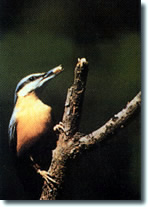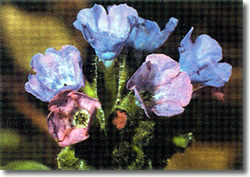|
|
| |
To some extent the
municipal land of Prato Sesia borders south on Mount Fenera
Wildlife Reserve, appointed by a regional Act on 30th march
1987 by Piedmont Board aiming at the preservation of limestone of
Mount Fenera with its paleontologic features unique in the Western
Alps.
 Besides
Prato Sesia the Reserve includes the hills north Grignasco, Cavallirio
and Boca (Novara province), Borgosesia and Valduggia (Vercelli province). Besides
Prato Sesia the Reserve includes the hills north Grignasco, Cavallirio
and Boca (Novara province), Borgosesia and Valduggia (Vercelli province).
This area is a picturesque landscape all vineyards.
There are also some important historical-documentary and architectural
remains such as Boca shrine, the ruins of S. Genesio's castle at
Grignasco and of Robiallo at Bettole.
The hamlets of Ara, Colma, Castagnola and Maretti by the river Sesia
and in Valduggia valley still show their first establishment. At
Sorgano the typical "Taragn" can be seen, these are country
cottages with roofs made of rye, they are going to be more appreciated
in the whole plan of "Ecomuseum" of country life.
On Bastà peak, the top of Mount Fenera, there is a cross
raised in the early 1900 that has been recently restored.
(By Mount Fenera Wildlife Reserve Board)
|
|
| |
|
|
|
|
| |
|
Route
|
| A picturesque and perfect
route for walks is the 1 hour easy path (road sign # 784)
that from via Vaglio, in the municipal land
of Prato Sesia, takes to Boca shrine.
|
|
Caves
|
|
The limestone creates typical
enchanting hollows, gorges and swallow-holes.
On the mountain there are some remarkable, speleologically
speaking, caves where remains of fossil animals that
lived once on Fenera have been found (cave bear, Merck rhino,
cave lion).
|
|
Flora
|
 The
peculiar chemical composition of the limestone favours the
survival of a rare vegetation that in this part of Piedmont
can be found only on this Mount. The
peculiar chemical composition of the limestone favours the
survival of a rare vegetation that in this part of Piedmont
can be found only on this Mount.
Hart's-tongue, Iris Graminea, spurge laurel and Pulmonaria
must be mentioned, in this area over 800 different botanic
species have been classified.
|
|
Fauna
|
|
The reserve is rich in forest
fauna: martens, roe deers, badgers, birds
such as the Muratore woodpecker, the turtledove, the
wryneck and above all some daily birds of prey such
as the peregrine that lives on the rocks
and the harrier eagle that lives in the moors.
Fenera is the only Reserve in Italy that hosts the nest-building
of the very rare black stork, after centuries
this has come back to Italy to nest.
|
|
|
|
|
 Besides
Prato Sesia the Reserve includes the hills north Grignasco, Cavallirio
and Boca (Novara province), Borgosesia and Valduggia (Vercelli province).
Besides
Prato Sesia the Reserve includes the hills north Grignasco, Cavallirio
and Boca (Novara province), Borgosesia and Valduggia (Vercelli province). The
peculiar chemical composition of the limestone favours the
survival of a rare vegetation that in this part of Piedmont
can be found only on this Mount.
The
peculiar chemical composition of the limestone favours the
survival of a rare vegetation that in this part of Piedmont
can be found only on this Mount.